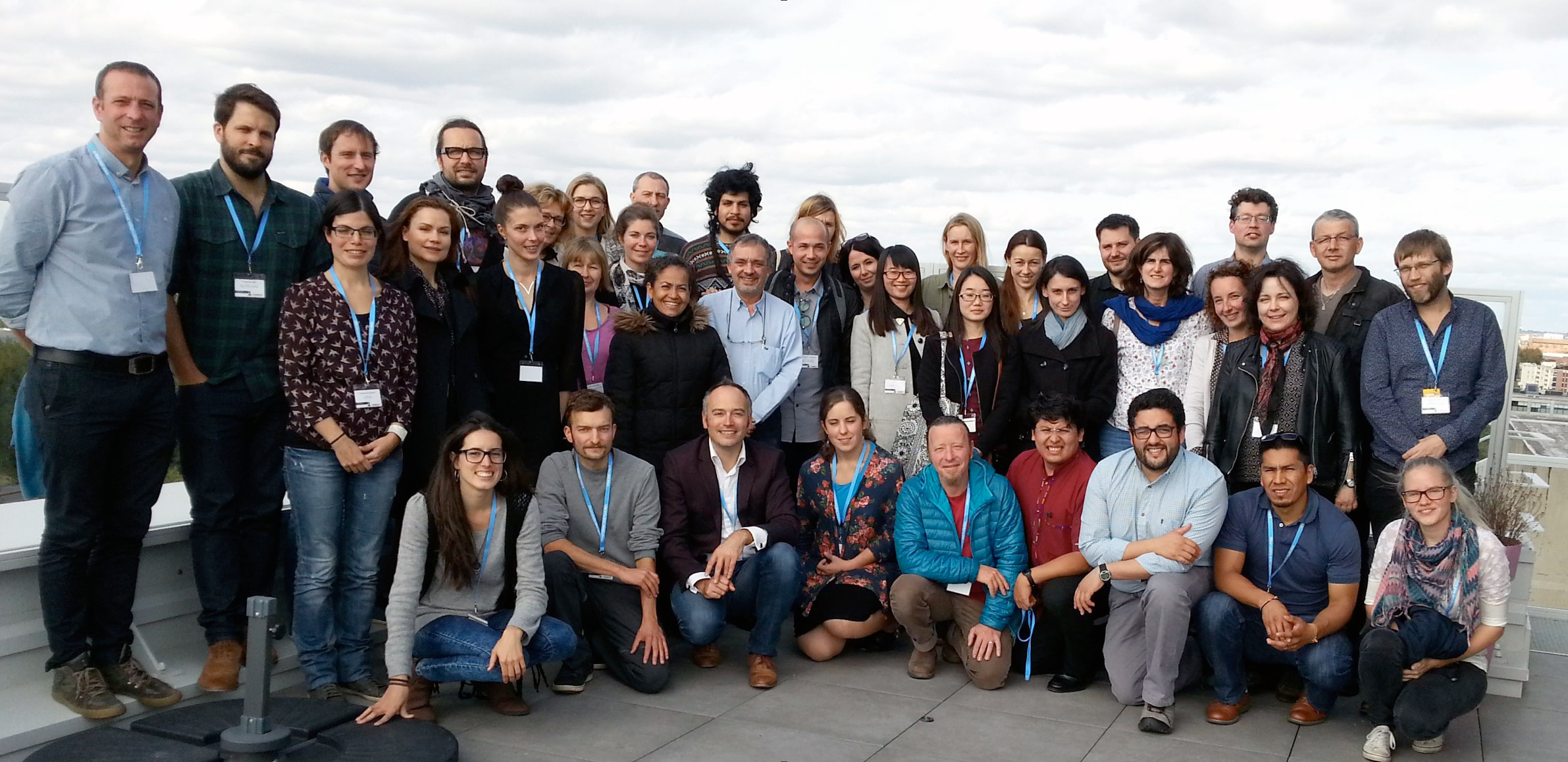Toulouse, France
 ensat.fr
ensat.fr
The DANTE (Dating the Anthropocene in Environmental Archives) workshop, titled "Bridging the gap between 210Pb and radiocarbon age dating" will be held from 19-21 October 2016 in Toulouse, France.
Overview
High-resolution chronologies are needed for the last 500 years to reconstruct pollutant deposition, calibrate atmospheric transport models, investigate biodiversity changes in the past, understand long term sequestration of organic matter and carbon, validate and calibrate environmental archives-based paleoclimate records with instrumental and monitoring data, amongst others.
Traditional sediment dating using conventional radiocarbon for deeper layers and 210Pb for upper layers are the most commonly used geochronological methods. Additional chronomarkers like 137Cs pulse, well-known sedimentary events or relative changes in exotic pollen taxa are also frequently used. Despite that, there are issues on the precision and the quality of the ages provided by all techniques. There is an urgent need to develop and validate an integrated approach to make compatible the results of the resulting chronologies and integrate them into a unique conceptual and numerical approach.
Workshop aims
The workshop aims to present to the paleocommunity the latest achievements in lake and peat geochronology for the Anthropocene, especially on combining 210Pb dates with traditional and bomb-pulse 14C dates.
The workshop will be divided into two parts:
1. Users will be trained using idealized datasets and their own datasets. A special focus will be given on uncertainties and cross-checking between the different geochronological methods to ensure best practice and valuable data.
2. Time will be dedicated for a number of talks, posters and free discussions.
Proposed sessions are:
Theory in age depth-models: bridging the gap between 210Pb and 14C
Other chronomarkers (exotic pollen taxons, µ-tephras, exogenous material…)
Case studies
Confirmed guest speakers
Dr. Maarten Blaauw (Queen's University, Belfast, UK)
Dr. Joan Albert Sanchez Cabezas (Institu de Ciencas del Mar y Limnologia, Universidad Nacional Autonoma de Mexico, Mexico)
Organizing committee
Gaël Le Roux (EcoLab, CNRS, Université de Toulouse)
François De Vleeschouwer (EcoLab, CNRS, Université de Toulouse)
Jeroen Sonke (GET, CNRS, Université de Toulouse)
Didier Galop (GEODE, CNRS, Université de Toulouse)
Emmanuel Chapron (GEODE, CNRS, Université de Toulouse)
Florence Mazier (GEODE, CNRS, Université de Toulouse)
Sandrine Baron (TRACES , CNRS, Université de Toulouse)
Pieter van Beek (LEGOS, CNRS, Université de Toulouse)
Maarten Blaauw (Queen’s University Belfast)
Marco Aquino Lopez (Queen’s University Belfast)
Deadlines
Abstract submission closes: 15 September
Early bird registraton closes: 21 September
Registration closes: 30 September
Registration and abstract submission
Go to: http://inpact.inp-toulouse.fr/PEAT3/
Further information
Email Gaël Le Roux, on behalf of the organization committee, with additional questions to gael.leroux ensat.fr (gael[dot]leroux[at]ensat[dot]fr)
ensat.fr (gael[dot]leroux[at]ensat[dot]fr)
or the conference secretariat radon_secretariat inp-toulouse.fr (radon_secretariat[at]inp-toulouse[dot]fr)
inp-toulouse.fr (radon_secretariat[at]inp-toulouse[dot]fr)
Post-workshop material
Workshop report by Chuxian Li (EcoLab CNRS – Université de Toulouse) and Clemens von Scheffer (Institut für Ökosystemforschung – Christian-Albrechts-Universität zu Kiel)
The 1st DANTE workshop was successfully held from 19-21 October in Toulouse, France. It is of great interest and importance to bridge the gap between 210Pb and 14C age dating in the past 500 years, just when the Industrial Revolution began to rise and mankind’s footprint became global; no matter if peat bogs, lake sediments or any other environmental archives connecting both age dating techniques seldom yield smooth age models. Forty-one participants, from almost 20 countries, devoted themselves to discussing this issue, from its background to related case studies.
As a consensus, the DANTE-workshop helped participants better understand the age models, by highlighting the obstacles in age dating, the importance of choosing high-quality archives, sample selection and their treatment and choice of age models. Several other time markers were also proposed to help minimize the uncertainties, including Tephra layers, bomb pulse, metal records and historical source. However, circular reasoning among these chronomarkers must be avoided and their regional restrictions should be considered.
But first of all, raising awareness in the scientific community is the major priority. Otherwise, future studies that are touching this critical period of time will remain afflicted by uncertainties and bad inter-comparison. Moreover, a one-time workshop is not enough for us to understand better and solve the issue of age dating for different matrices. Until the second DANTE-Workshop in Toulouse that will be held following the IMS2017 Toulouse, 10-12 October 2017, this agenda will be enforced by the organizers and volunteering participants.
